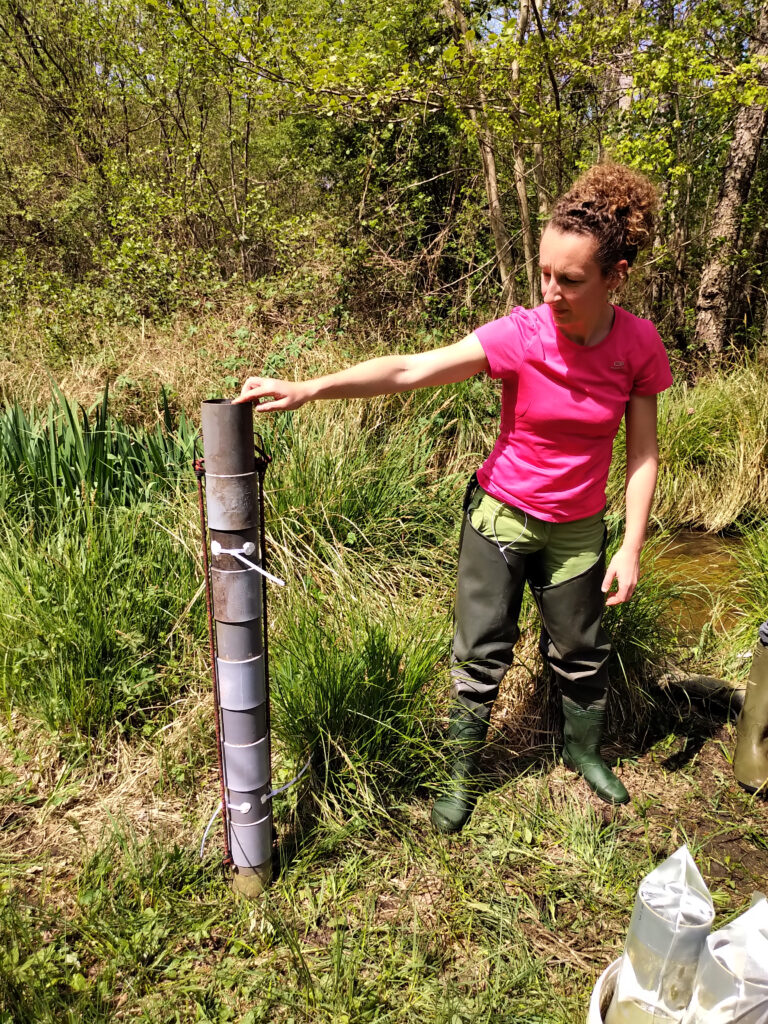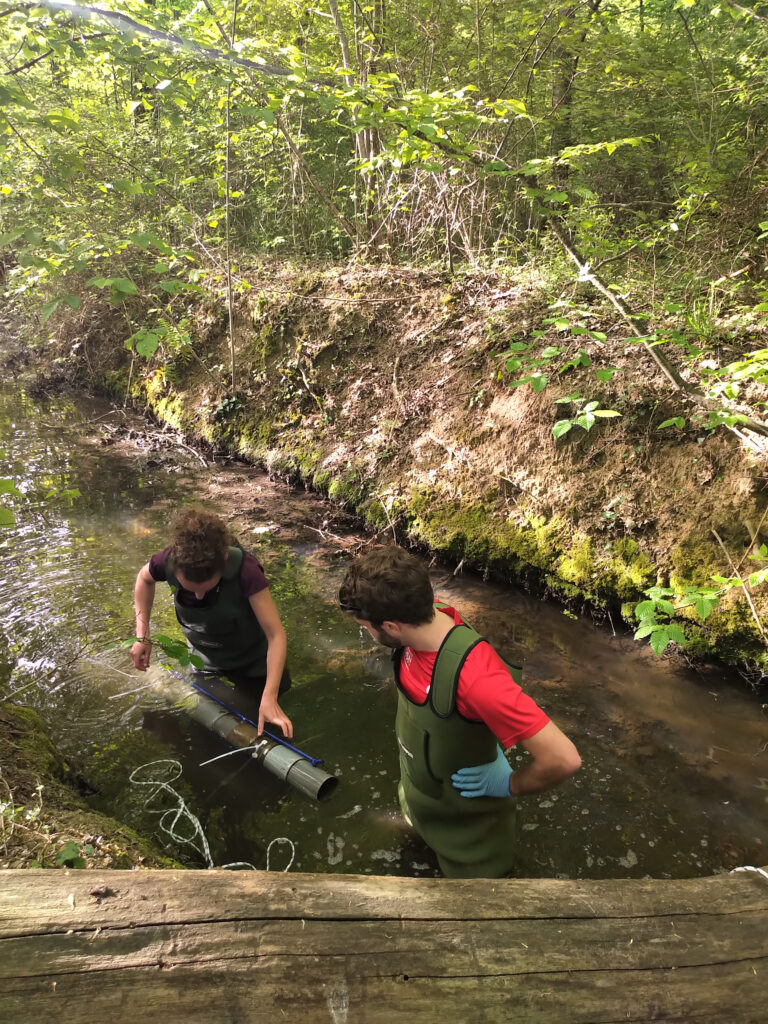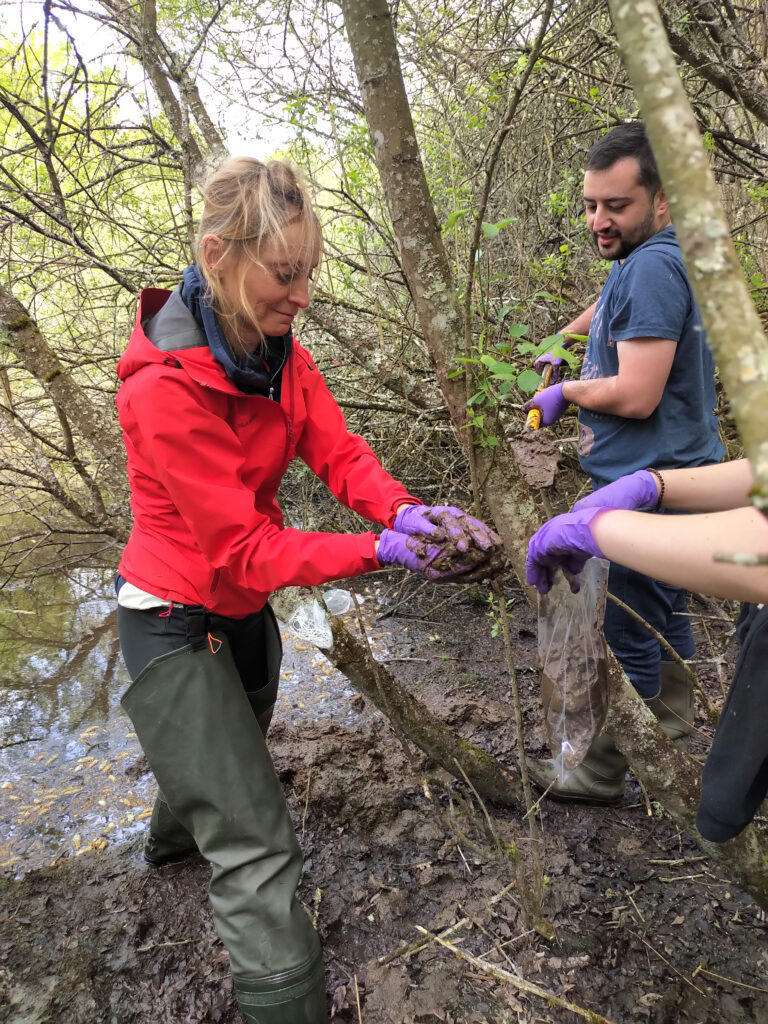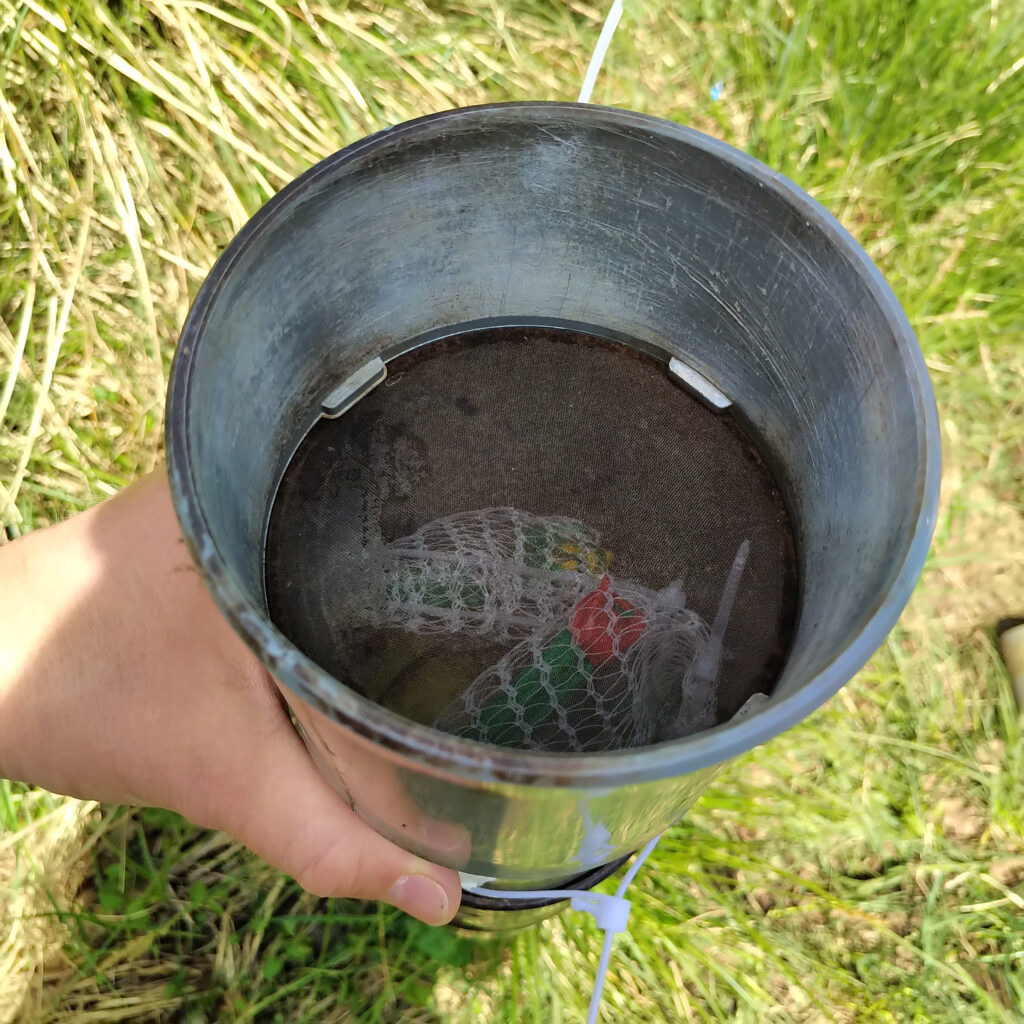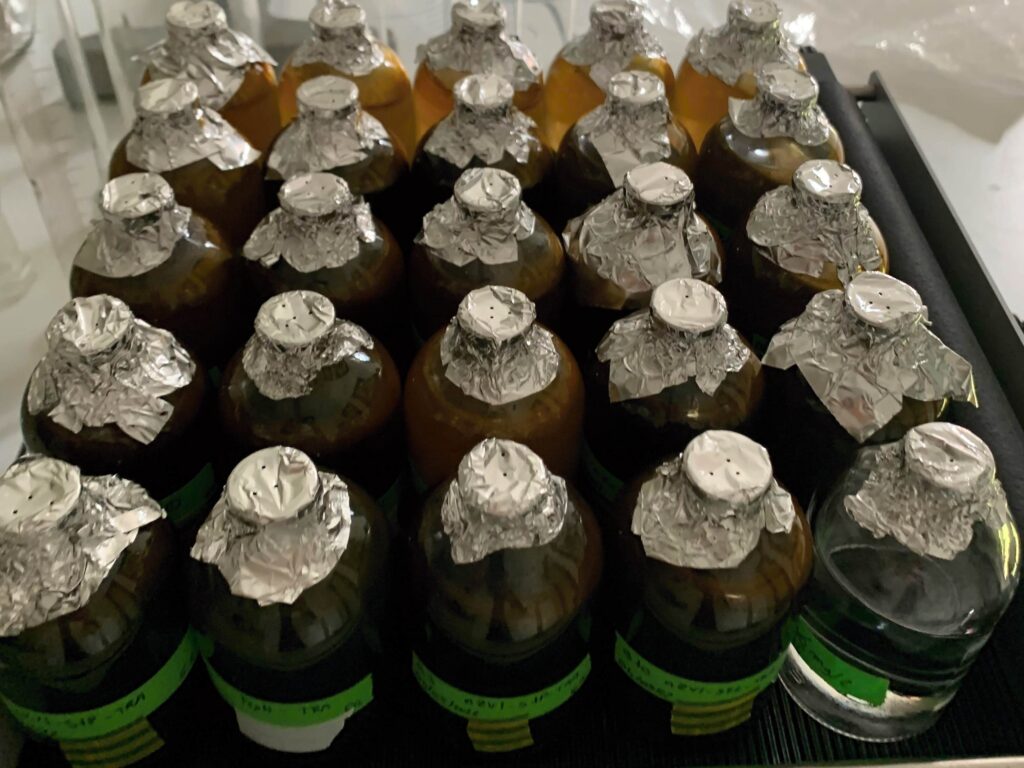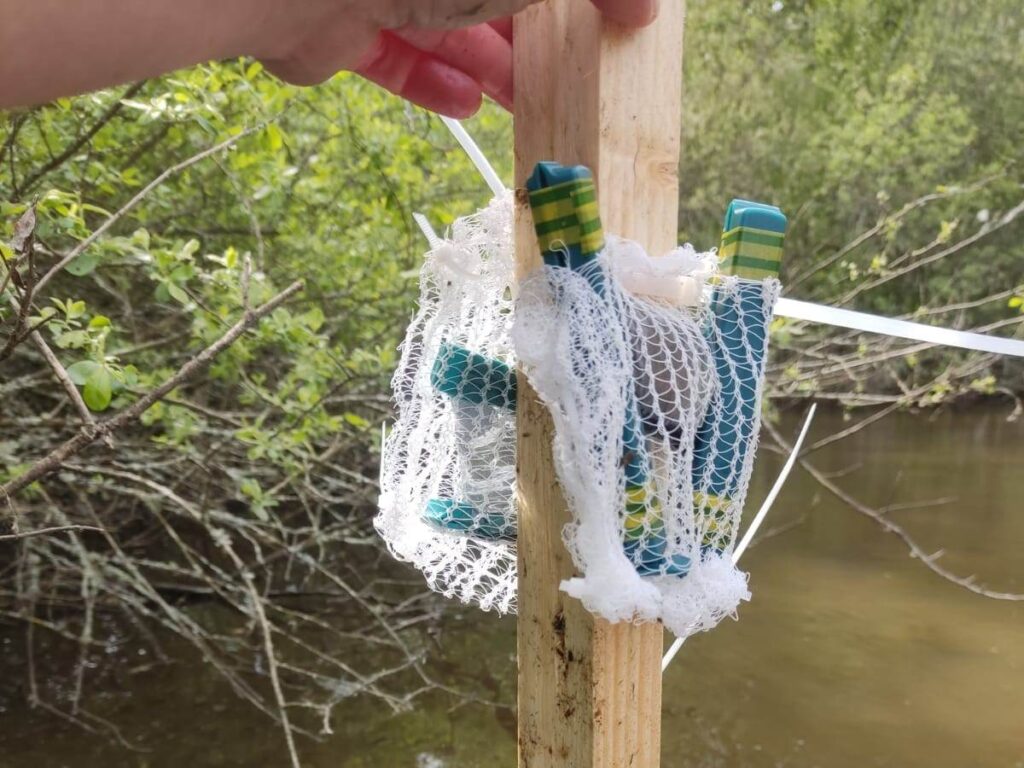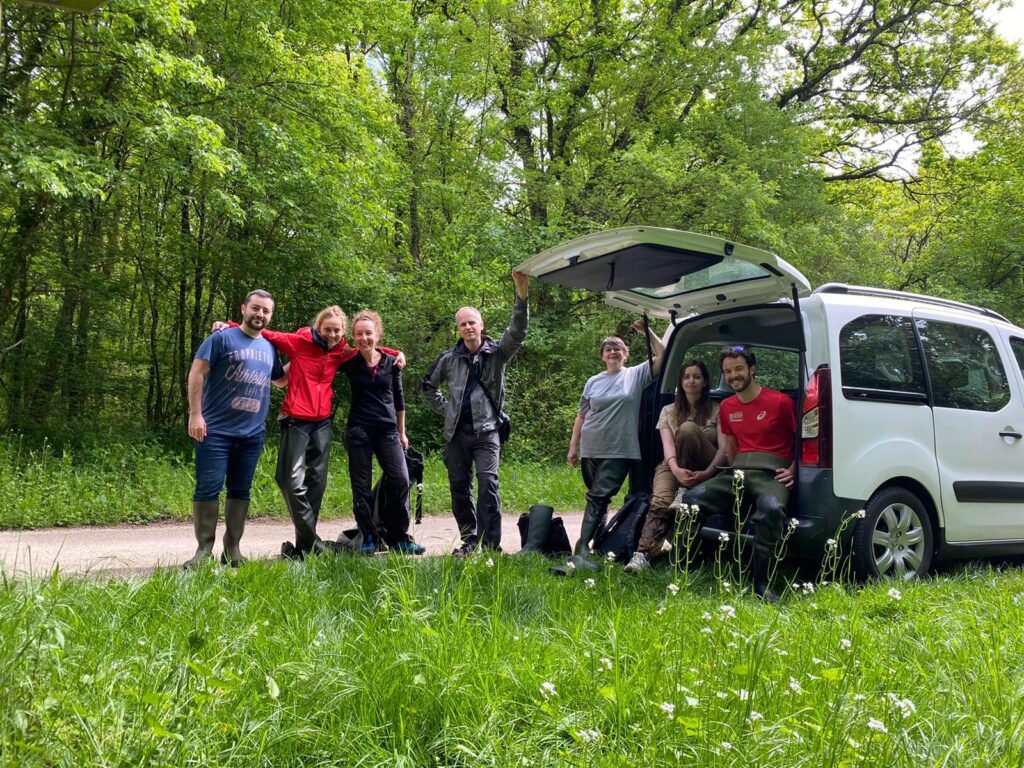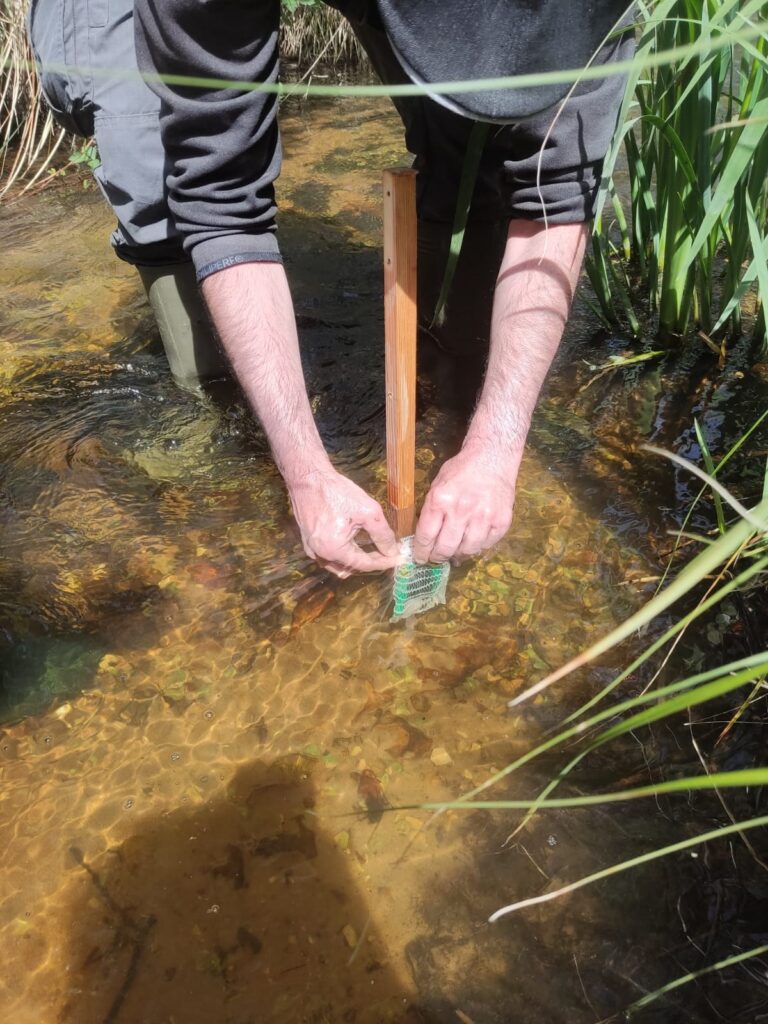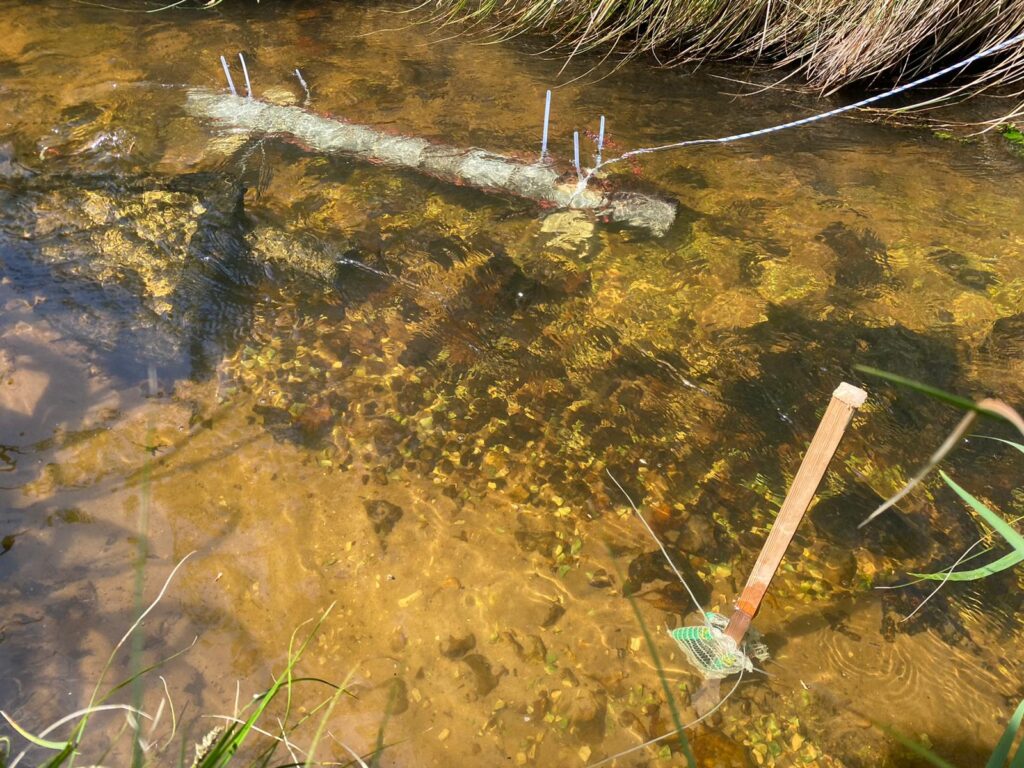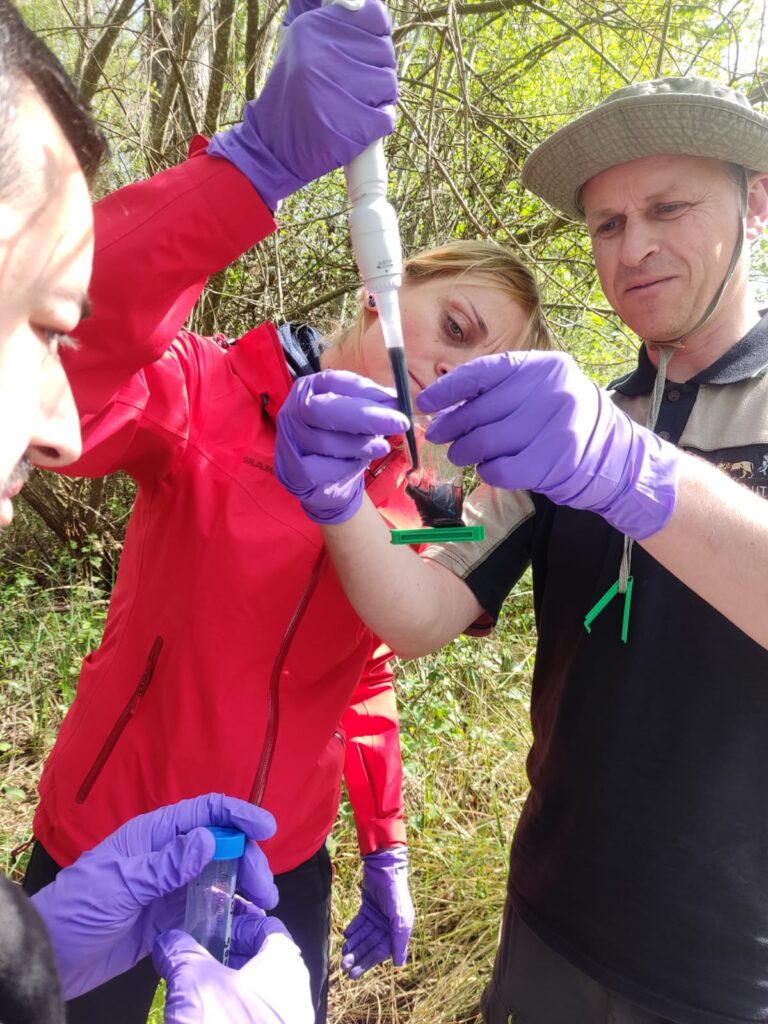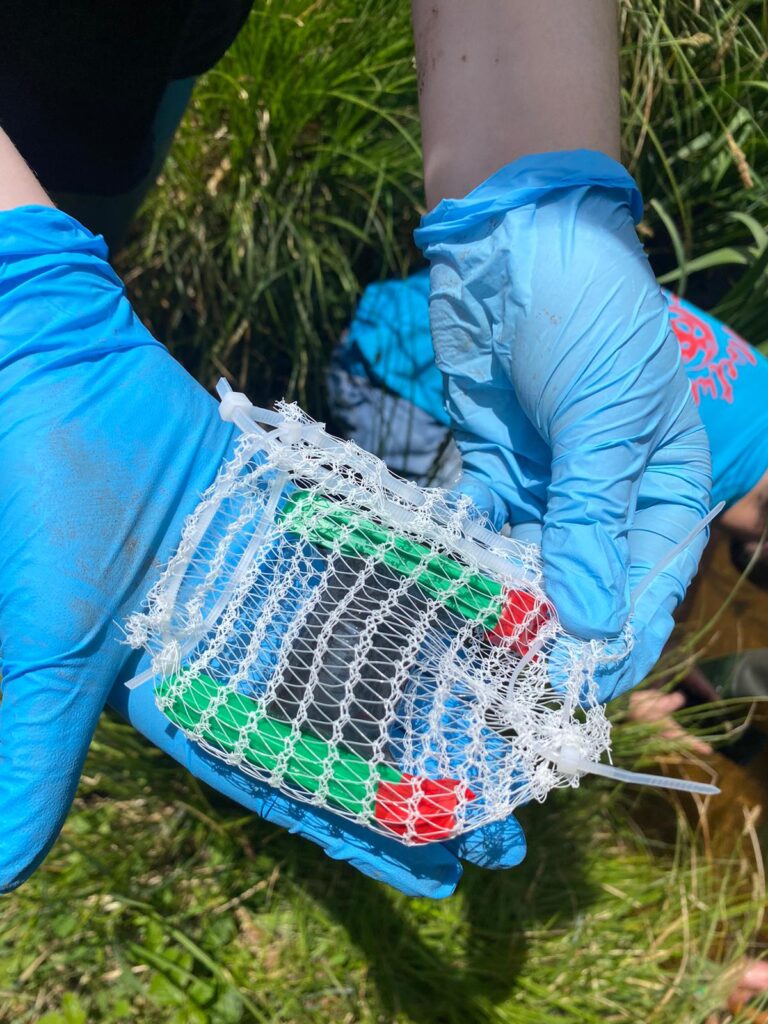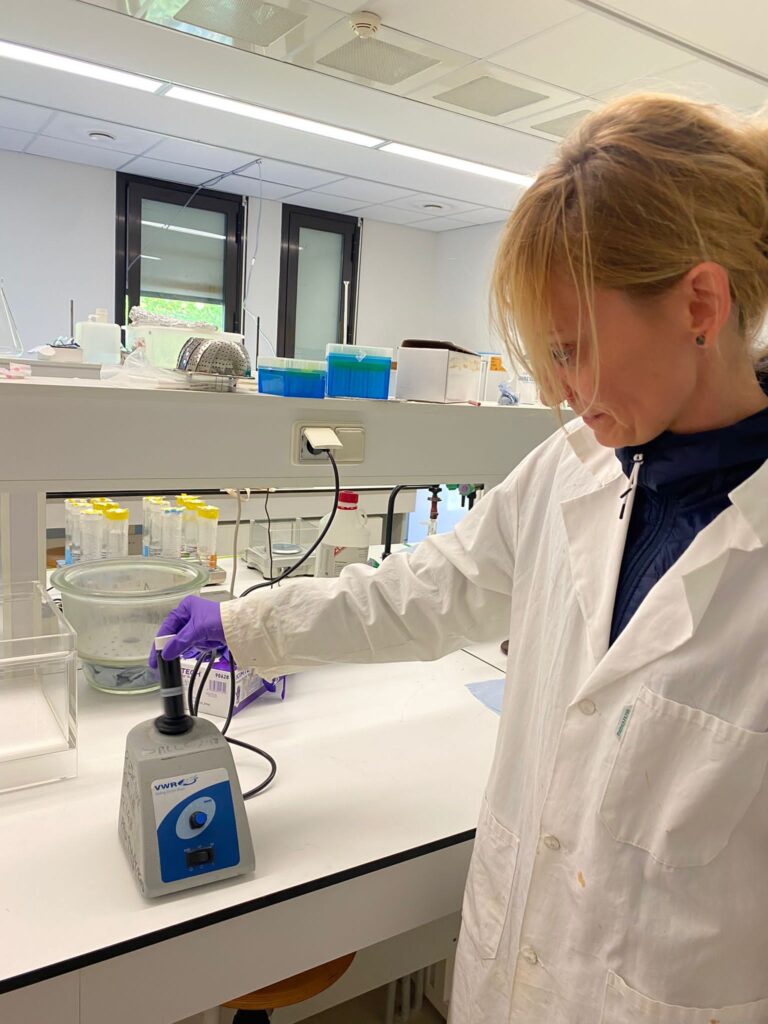Czech–French Project to Support Wetlands Remediation by Iron Nanoparticles
A joint seminar kicked off a project bringing together CATRIN of Palacký University Olomouc and Institut des Sciences de la Terre d’Orléans (ISTO) – Université d’Orléans. Thanks to it, researchers will get insight into the long-term stability of iron nanoparticles, alongside enhancing their efficacy towards emerging organic pollutants in waters. Building a network of contacts that may enable, in the future, participation in international consortia is a goal of no less importance.
The seminar in France presented the progress on nanomaterials and their role in new or improved nanotechnologies and biotechnologies. CATRIN was represented by the leader of the Environmental Nanotechnologies group, Jan Filip, and the project investigator, Veronika Veselská.
“We introduced our research centre, our activities, and the results we achieved with iron nanoparticles. We were introduced to the research infrastructure of the partner university and saw, in their geological institute, unique equipment that enables to monitor the migration of nanoparticles as well as the spread of hazardous substances in the environment. Cooperation within the currently implemented project will run for two years, and in the future, we plan on connecting with other workplaces in Spain and Germany to prepare a major European project,” said Filip.
In France, CATRIN researchers also performed laboratory experiments, and with the nanoparticles developed in Olomouc, they launched a series of field experiments in local wetlands.
“Since wetlands are considered important hotspots for organic matter production, we will be primarily focusing on the interactions between differently modified iron nanoparticles and organic matter. The effect of organic matter on the nanoparticles’ behaviour will be studied in a specific environment under intense redox dynamics. At the same time, we will be monitoring the nanoparticles efficiency in removing pharmaceuticals as the main emerging pollutants in local areas. This information will be crucial to setting the right conditions for effectively and comprehensively cleaning contaminated wetlands, along with directly impacting further application of iron nanoparticles within the constructed wetlands as part of the remediation processes,” explained Veselská.
The interaction between iron nanoparticles and pure organic matter will also be verified under laboratory conditions. The results will also be important for understanding the specific role of natural organic matter in the efficiency of iron nanoparticles towards pharmaceutical products that need to be removed from the environment.
The two-year project ‘The influence of organic matter on the efficiency of iron nanoparticles in the removal of pharmaceuticals in wetlands’, supported by the Ministry of Education, Youth and Sports of the Czech Republic, will last until the end of 2023.



